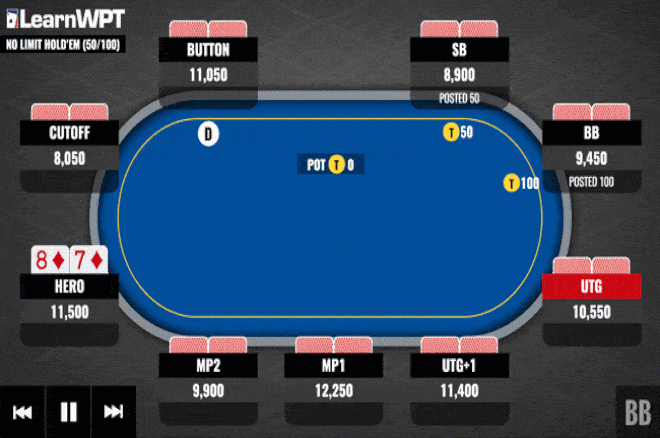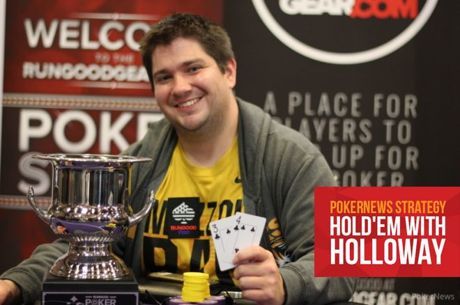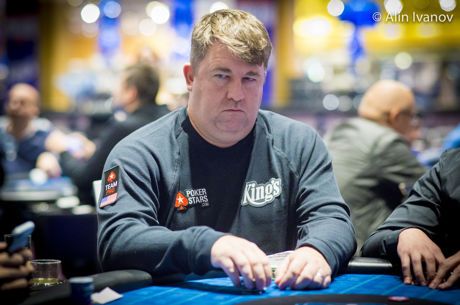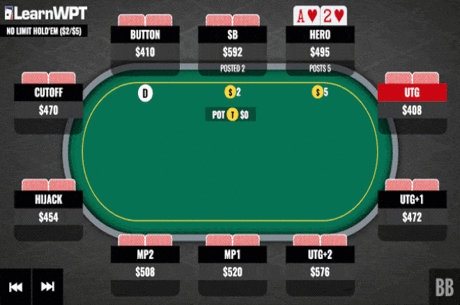Trip Eights on the River vs. a Pot-Sized Bet

DECISION POINT: In a no-limit hold'em tournament, it folds to you in the hijack with 8?7? and you raise. The button and big blind both call, and the flop comes 8?8?5?. The big blind checks, you bet, the button calls, and the big blind folds. The turn is the 2?. You bet and the button calls again.
The river is the 4?. This time you check, and the button makes a pot-sized bet. The action is on you...
PRO ANSWER: In this hand we raised preflop from the hijack seat with suited connectors and flopped trips on a board that also includes a flush draw. We make bets on both the flop and turn and get called both times by the player on the button. The river does not complete the flush draw, and after we check our opponent makes a pot-sized bet.
Since the flush draw did not come in, there are a fair number of combinations of missed flush draws in our opponent's range. Our hand will win against the button's range often enough to rule out folding as an option, but what about calling versus raising?
Whenever we consider raising on the river, we should not simply compare our hand to our opponent's range to see whether or not it's ahead at the moment, but instead we should compare our hand to the range of hands with which our opponent will call our raise.
In other words, if we move all in here (the only logical raise size) and our opponent calls, what type of hands will the button show? Are there enough worse hands in our opponent's range to make raising a good play?
Many of the hands that we beat are missed flush draws, and since they will fold these hands to a raise, we are unable to get any further value from them. There aren't many made hands worse than ours that will call a raise.
Hands like 8x6x or (more rarely) a big overpair make up most of the hands from which we will get value if we raise. Other hands that will call our raise are better trips, full houses, and straights �� all hands that beat ours. Therefore raising will not be profitable in the long run.
That leaves calling as the only viable option. Calling will show a profit against our opponent's range in this spot.
Calling is the best play.
LearnWPT is a poker training site dedicated to transforming the poker games of rank beginners, skilled amateurs, and aspiring professionals. Offering both Live Workshops and Online Training, is a one-stop shop for poker education, designed to provide all the tools a player needs to become a winner. Visit LearnWPT.com today and get 2 Free Strategy Episodes that will immediately impact how you play. LearnWPT.com - Think Like a Pro!









